Welcome to week one, online guide to everything HtTAJwBTG. We will begin with week one’s presentation notes, and then at the bottom I will provide a few links for further study. Hope to see you join us in person next week!

Welcome to our first gathering to expand our understanding of evangelism.
I would like to begin today’s conversation with a quote.

This sounds intense for those who have detached from the value or have a negative view of evangelism. Unrelenting is not the same as aggression or brutality, nor should it be assumed to have a negative tone. One’s hair growth can be unrelenting, and the sunrises and sunsets are unrelenting in their continuous cycle. When something is part of you, body, and soul, you will breathe it, and in that, your evangelism will never cease.

When Jesus’ ministry first hit the globe, it was so monumentally life-changing that it reshaped the worldview of the majority of the Western and Eastern world, and this reshaping was due to a natural impulse to share the Gospel.
Christianity introduced concepts like:
inherent human value
equality between race and gender
care for low casts
accountability of royalty and wealthy
global accountability and peace
repentance and forgiveness
explanation for suffering and suffering’s redemption in God
and a God who loved the world
etc.,
It took time for this new concept to take hold, and people never do anything perfect. Yet, Christianity was contagious and Christianity became the one of if not the dominant religion in the world for many years.
Now that all that history is a much longer conversation, but to quickly summarize 2000 plus years, the dominance would cause an ingrained belief in many in the West that the Christian worldview was forever a given. So, the practice of evangelism became seen as less crucial unless you were a missionary in a part of the non-Christian or some of the remote parts of the global south. On the home front Christianity was so interwoven it was assumed, and for everyday folk, even the variance of the denomination had to do more with familial background than theological belief.
But suddenly due to a few factors in history, Christianity is no longer at the forefront of our society, nor necessarily a given in the average life of the Westerner. In many ways, evangelism today is more like the evangelism of Jesus’ time, than it was 100 years ago.

These are the questions I want in the back of your mind as we read through Chan’s book, and as we sit a learn together in this space. We ask What is Biblical Evangelism, for two reasons: (1) with many Christians’ doing away with Evangelism as a practice, it would be good to know why God has always seemed to encourage the sharing of Faith both in the Old and New Testament. If Evangelism is an expectation it might be wise to understand exactly what that expectation looks like, and what purpose it fulfills (2) there have been many tactics of Evangelism throughout history, many strategies, some good ones, some not so God, what we want to come to understand is what the Bible shows us Jesus and the apostles doing to Evangelize to the world? Since we are in a Rome-like culture now, this will not only show us what Christ’s expectation was but also give us some pragmatic strategies.
From my description of question 1, you can understand questions 2 and 3, what are we called to evangelize? And what are the Godliest ways to Evangelize?
Fundamentally, it helps us as a participant in faithful actions to understand the meaning and purpose behind the action, and the best practices to get the optimal results for the glory of God.
The last question is obvious. No one likes doing anything on rocky terrain, thus most people if they are not confident in the process of evangelizing, they won’t do it. Insecurity becomes a wedge between you and Christ.

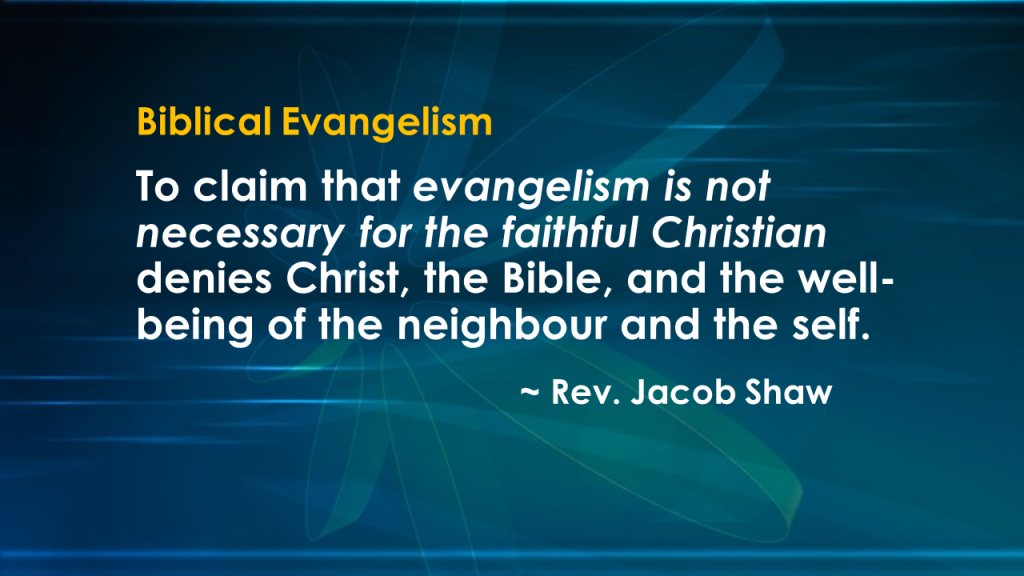
First I would like to note something I believe. You can see the quote from myself here. Many Christian, especially in more progressive circles, have a optional or archaic opinion about evangelism. I find this greatly concerning as there are major theological and philosophical issues that occur when people disregard evangelism. Let look at the Bible for further guidance.
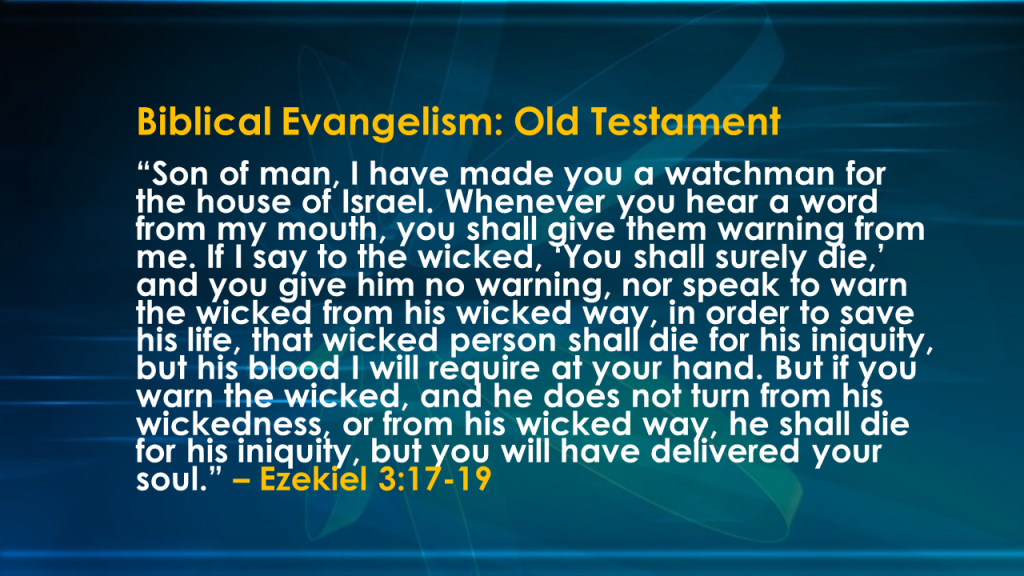
Old Testament evangelism is for the most part in-house, evangelizing to those who had faith and were straying or lost it in favor of false gods or worldviews. The lapsed-Christian might be the equivalent to us today, or Christians who have adopted a perception of Christianity which might be too far off the core doctrine of the Biblical teaching. Though there are references to gentile conversion, that is not the primary focus of the Old Testament.
There is, however, a necessity of sorts to evangelize with a moral precedent. The prophets are key figures in this as the prophetic duty was to change the perceptions of people, to repent, and turn back to God. There is NO moral relativity in the Bible. And to turn a blind eye when encountering sinners is a moral failing. We are called to serve the truth of God and speak that truth regardless of what the world feels about it.
Look to the Prophet like Ezekiel, Isaiah or Jonah for examples of how God calls his followers to proclaim the authority of the Lord, often to the ears and hearts of sinners and even enemies.

In addition to the reforming of straying Israelites, there appears to be a projection of global evangelism, as God’s name becomes known throughout the nations. For my name will be great among the nations, says the Lord of hosts & I will show my greatness and my holiness and make myself known in the eyes of many nations. Then they will know that I am the LORD. Much of this becomes the spring board for the more global conversionary structure of Christianity.
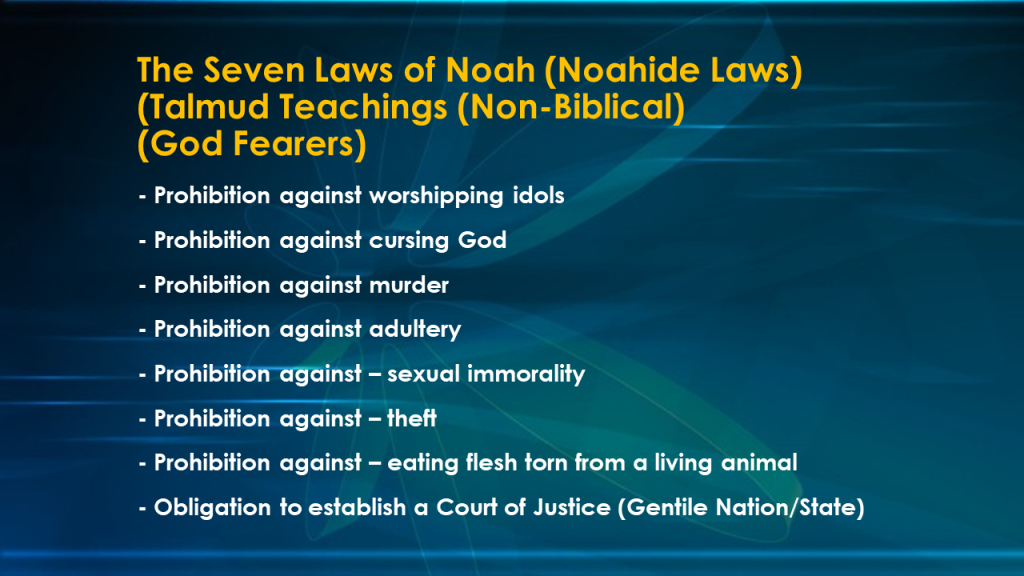
Because the Old Testament had this conversionary tone for Gentiles, but it never goes as far as we see with Jesus and the Apostle Paul, the Talmud contains the Noahide laws, a salvific outline for Gentiles to find salvation under the God of Israel. The Gentiles were not required to endure the full wait of the Mosaic Law but could find refuge under this lighter yoking, if you will. This developed in 70 AD, following the destruction of the Second Temple.
I place this here as evidence that shows that the natural course of the Old Testament is towards a global evangelism to faith in the One True God. Even though Israel did not have a commission to convert all people, it still seems to be part of the underlying logic and will of the Creator.
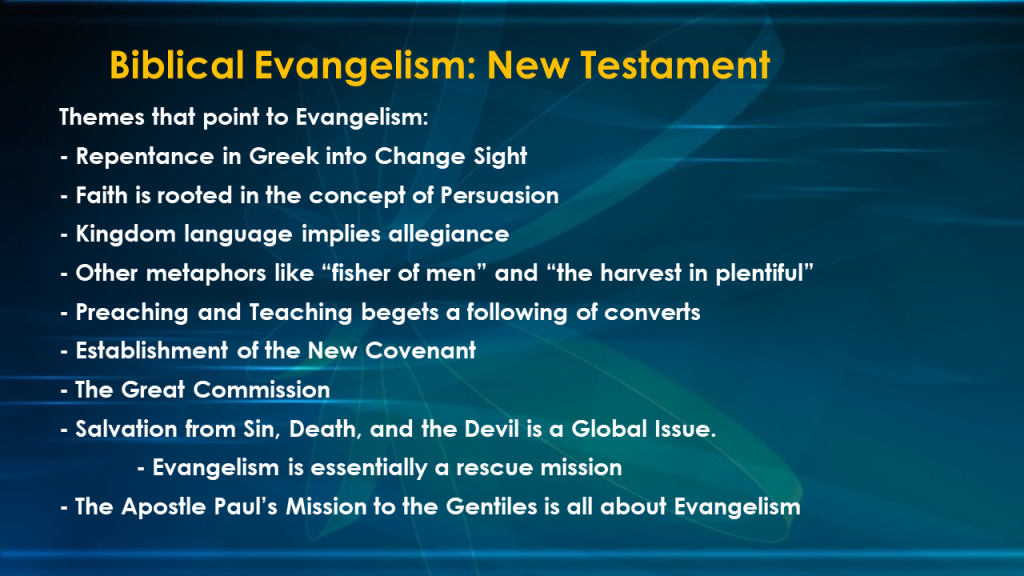
Almost every motif, storyline, and theme in the New Testament point to evangelism as a necessity of faith life, and a central theme to the Gospels as a whole. It would be hard to claim that evangelism is not necessary when much of the shared imagery and direct commands are linked together in a theme of reconciling people to God, and convincing people that God has made room for this through Jesus.
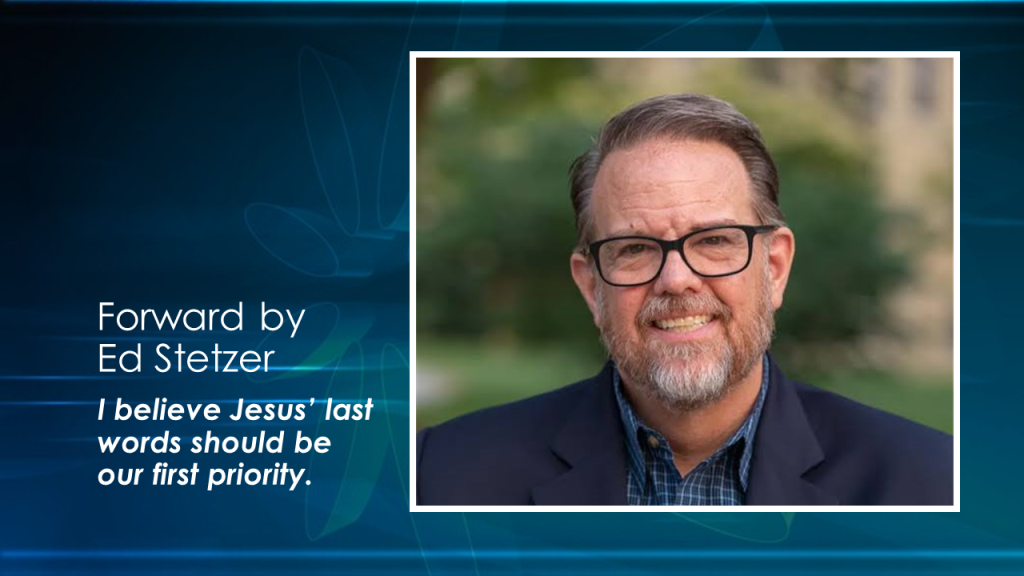
Stetzer opens his forward with these words. I believe Jesus’ last words should be our first priority. I think this statement has some validity, before Jesus returns to the Father, Jesus highlights a command for evangelism, the Great Commission. When a parent leaves their children home alone for the first time, as they are heading out the door, the parent highlights the important things, do your homework, no T.V. after 8 o clock, brush your teeth before bed, and don’t use the stove. Evangelism must be a significant priority of faith because it was noted in this send-off from Jesus, we see this conclusion affirmed in the ministry in the Book of Acts and the establishment of Paul the Apostle whose whole ministry was evangelism to the Gentiles.
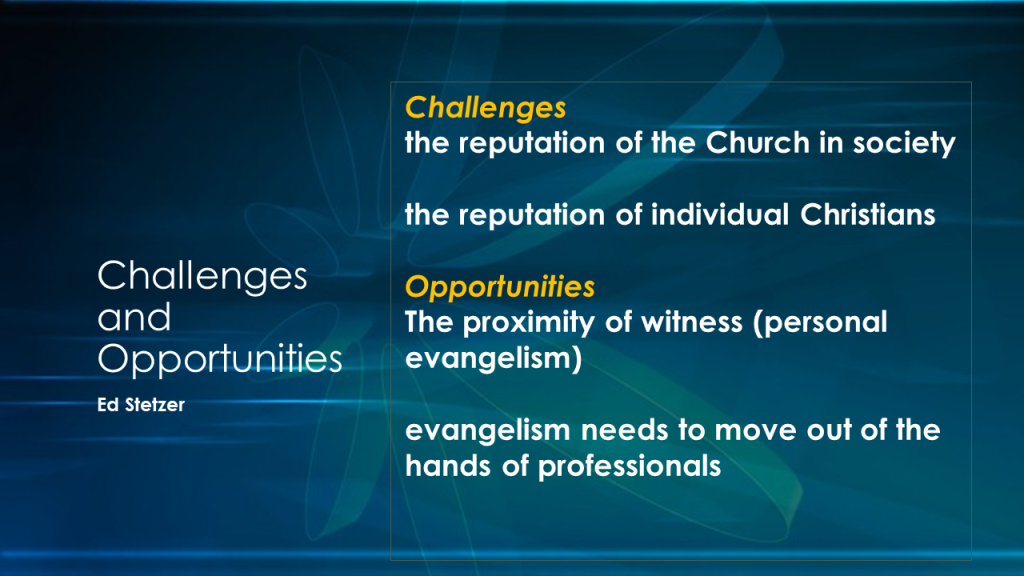
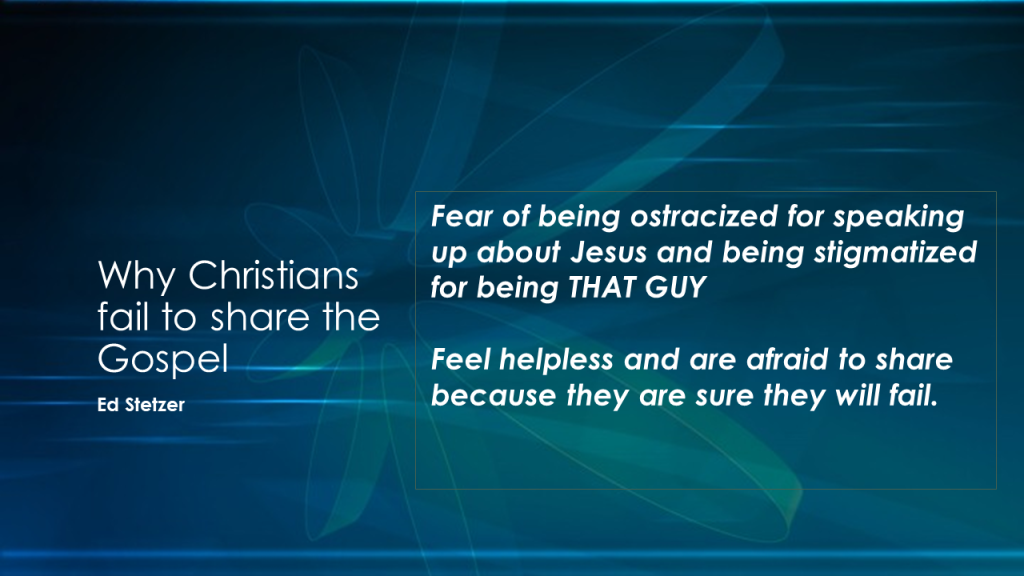
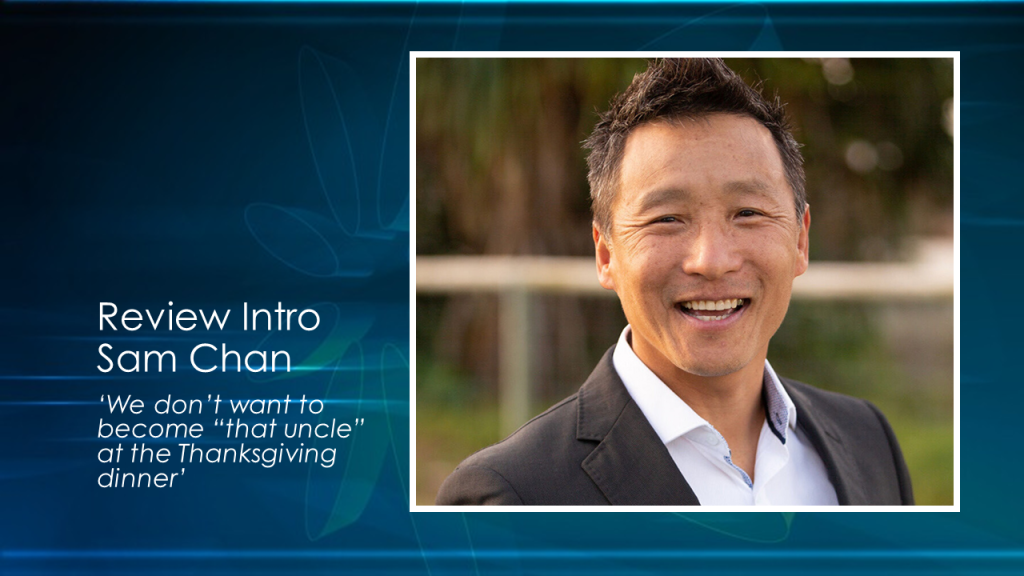
There is a wonderful gift in the title of this book and the desire not to have our evangelism be perceived as something “That Guy” or “That Uncle” or “That Coworker” would do. No matter what your passionate about, when you want to share it with someone, you hope it will be genuinely received, not seen as a form of power hungriness, or social manipulation, but a sharing out of genuine joy and excitement for your passion. And since sharing Jesus is an act of welcoming people to salvation, it’s a joy we also wish to share with people for their benefit. Trying not to be “That Guy” is part of a healthy and genuine heart to serve the Gospel in love and care.
Doctor On An Airplane
In the introduction we see Chan describe how a doctor saved a life on a plane from a heart attack. We find out afterward that the doctor who saved the life was an allergist, not necessarily the type of doctor trained for that kind of moment. But when the moment arose for someone to be saved from death, even with this allergist’s limitations, he took what he did know, what he remembered from his training in medical school, and did what he had to do.
This is a wonderful story to remember that we don’t need to be the ideal person for evangelism to evangelize. If we think about the story of the woman at the well. She had just encountered Jesus, she was a Samaritan, and she had a lot of sin in her life. When she came to understand who Jesus was, she instantly ran down to the community and began to proclaim the Messiah. She was not a priest, she was no theologian, she just had trust and knew she needed to share it.
Often God has equipped us with everything we need to evangelize, we just need to be brave enough to rise to the occasion.
This does not mean we all want to stay forever in the infancy of our faith. We can assume that naturally when you have a passion for something you want to know more. The Samaritan woman would have sought out more knowledge and study of Jesus and his teachings and would have ultimately learned of the love demonstrated upon the cross. It is the same with evangelism, one you realize that God can equip you to evangelize where you are now in faith, the more you will be able and willing to expand your skills and tools to aid you as you try to save lives.

When we evangelize, God is the one who is ultimately going to be doing the hard work, he will light the fire. God will transform hearts and lives, but God seems to prefer when we assist his work, we are to be an embodiment of his will.
So we do not evangelize alone. We evangelize with God, this is important work, and we are accountable to some degree for it, but it is not a work that we are solely responsible for. Our portion is to place material into people’s hearts for then God to light up.
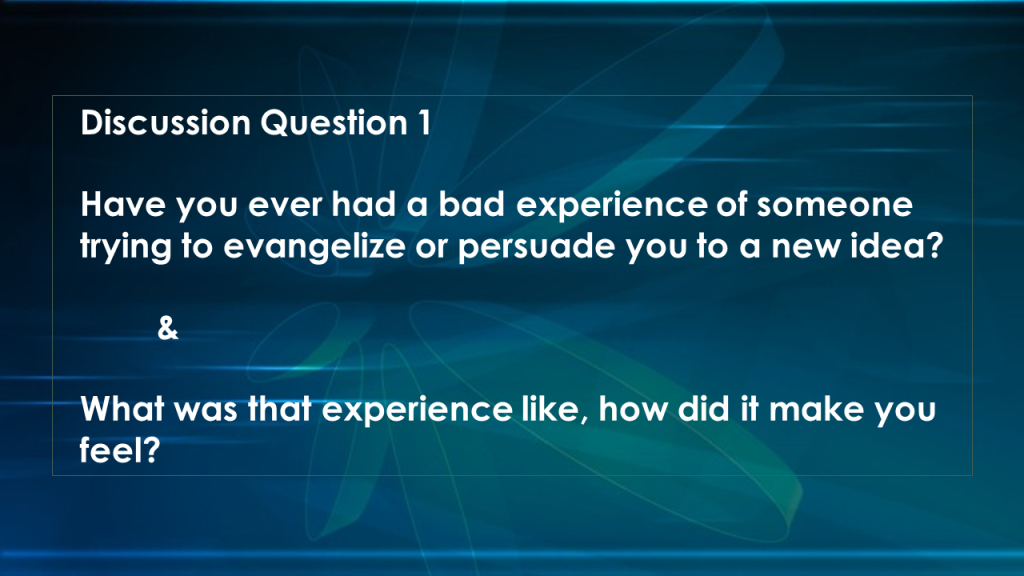
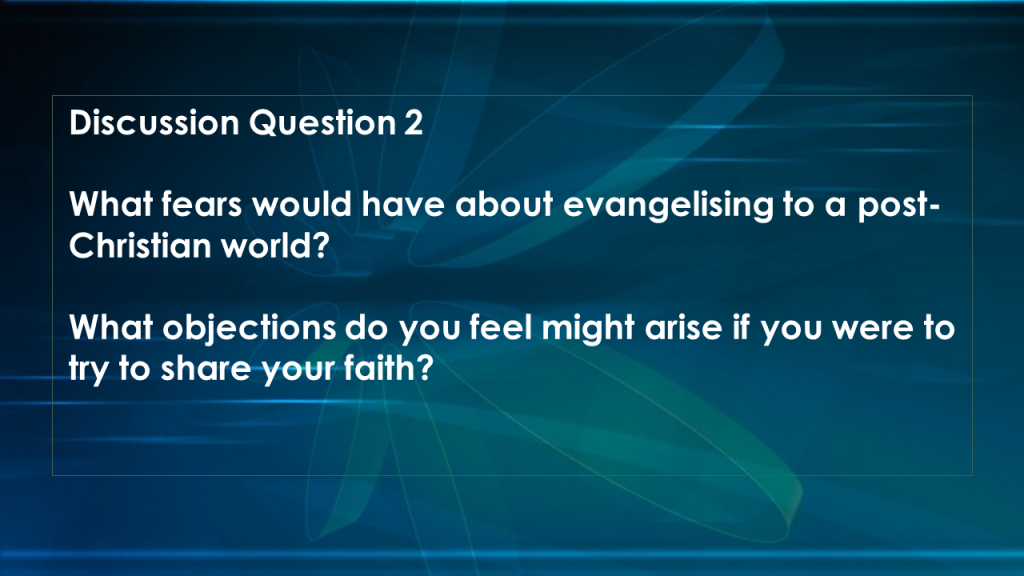
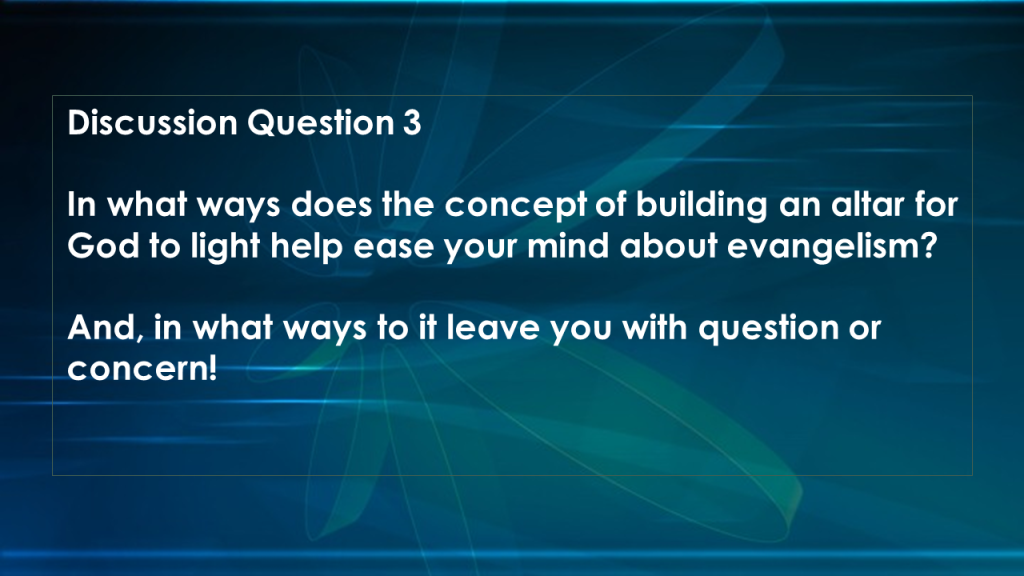
Thank you for joining us online here today to review the lecture material from February 15, for more reflection on the Forward and Introduction from Chan’s book, please follow this link –> Here (please note that the reflection found via this link is connected with a past program held by Villages United Church in Granton ON.)
Hope to see you next week either online or in church. GOD BLESS
Leave a Reply